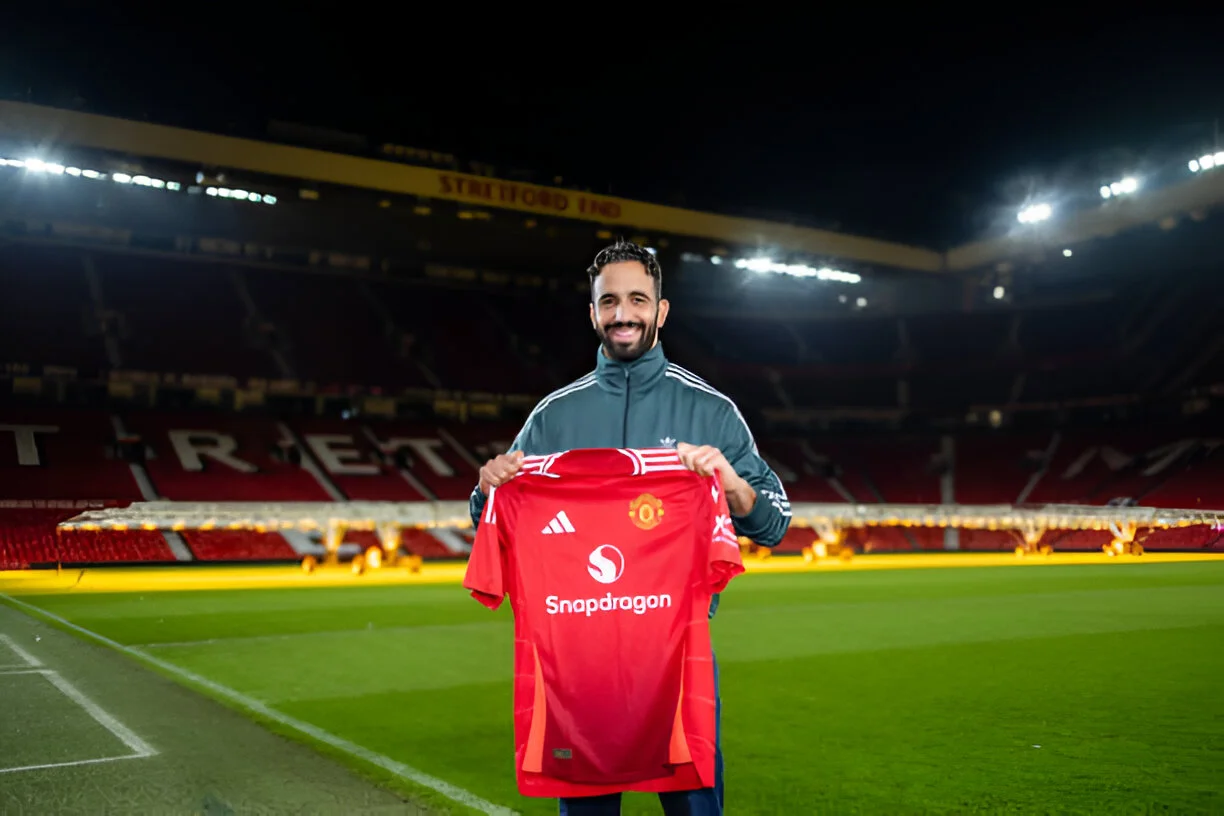Ruben Amorim’s appointment as Manchester United’s head coach marks a fresh chapter in the club’s tumultuous recent history, but it comes with a clear directive from the board: no massive spending spree.
Despite inheriting a squad that has already been heavily invested in, Amorim will be tasked with maximizing the potential of underperforming players rather than being handed a sizable transfer budget.
The decision to entrust Amorim with this role follows Erik ten Hag’s high-profile and expensive tenure, which saw United splash over £600 million on new signings. Yet, with Ineos tightening the purse strings at Old Trafford and focusing on sustainability, the club is no longer in a position to continue making such lavish investments. Instead, Amorim’s challenge will be to extract the best performances from the existing squad, many of whom have yet to reach their potential under previous managers.
Amorim, the first-ever “head coach” in United’s history, will spearhead a shift in management structure that also sees CEO Omar Berrada, director of football Dan Ashworth, and technical director Jason Wilcox playing pivotal roles. While Amorim will eventually have the opportunity to bring in his own players, the priority for now is to get the most out of the current roster.
There is growing belief internally that the talent at United’s disposal is capable of performing at a higher level. Players such as Mason Mount, signed for £55 million, and Rasmus Hojlund, who cost the club £72 million, are considered key figures who Amorim is expected to elevate to their peak. The hope is that a fresh approach under Amorim’s coaching philosophy will inspire the squad to reach new heights and improve results.
Another key player that the United hierarchy is hopeful Amorim can unlock is Manuel Ugarte. Having worked with the Uruguayan at Sporting CP, Amorim is familiar with Ugarte’s capabilities, and United’s investment of £50.8 million in the midfielder is seen as a long-term bet that could pay dividends under the right leadership.
Advertisement
Latest Press Conference
We’re on Social Media



Meanwhile, the club’s latest signing, teenager Leny Yoro, who joined for £52 million amidst fierce competition from European giants like Real Madrid and Liverpool, is another player earmarked for development under Amorim. Despite his youth, Yoro is seen as a player with immense potential, and the club’s investment in his future suggests they have high hopes for his growth.
2024 has been a year of significant upheaval for Manchester United, with the departure of Erik ten Hag, his coaching staff, and the restructuring of the club’s ownership following Sir Jim Ratcliffe’s £1.3 billion minority stake takeover. These changes have left the club in a period of flux, and the decision to reduce the transfer budget is partly aimed at bringing stability to the squad after years of constant change.
As the club works to stabilize its financial situation, there is also increased pressure to ensure the books balance. In recent seasons, Manchester United has posted losses before tax totaling £312.9 million, a situation that Ineos and the football board are keen to address. This means that while United must remain competitive on the pitch, they must also adhere to the Premier League’s profitability and sustainability rules, as well as UEFA’s financial regulations.
The reality of the club’s financial position is that big-money signings may be a thing of the past, at least for the immediate future. United’s focus, for now, will be on creating a sustainable model that can still compete at the highest level. This involves a careful balance of developing young talent, promoting squad cohesion, and extracting the maximum output from the existing players.
Amorim’s first official game in charge of United will take place on Sunday against Ipswich Town, with the Portuguese head coach already getting to work during training sessions. Midfielder Kobbie Mainoo, who has not featured since early October due to injury, is among the players Amorim is working with as he seeks to reshape the team’s fortunes.
It is clear that Amorim’s arrival is more than just a managerial change; it’s a statement of intent about how Manchester United plans to operate moving forward. In a season defined by financial prudence, his success will largely depend on his ability to get the best out of the resources at his disposal.
While United fans may have hoped for more marquee signings in the January window, Amorim’s role will likely be more about tactical refinement than a squad overhaul. His appointment represents a shift in philosophy from the previous regime, where big-money acquisitions often overshadowed the development of the existing squad. Now, the onus is on the new head coach to transform United into a more cohesive and effective unit, capable of competing with the best without the need for continuous investment in new players.
In the coming months, we can expect to see how Amorim adapts to the unique challenges at Manchester United. His ability to squeeze more from the current crop of players will determine whether he can navigate the reduced budget while meeting the high expectations of one of the world’s most demanding football clubs.
For now, the focus will be on Amorim’s tactical acumen and his ability to bring out the best in United’s existing squad. If he can achieve this, the club may just find a way to thrive without relying on another spending spree. However, only time will tell whether the Portuguese coach’s methods are enough to steer Manchester United back to the upper echelons of European football.
